I Hit 60 and These 15 Anti-Aging Foods Keep Me Fit and Feeling 20 Years Younger
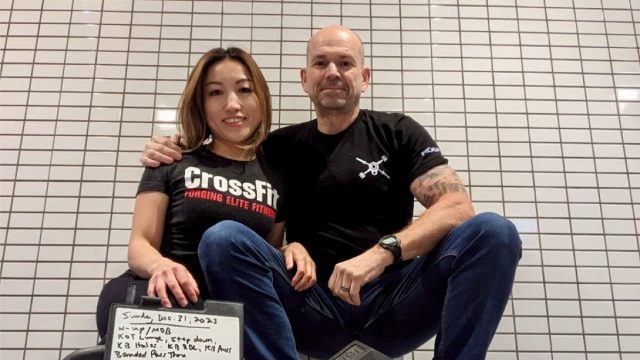
As a nutrition and fitness coach who careened into his 60th birthday this year, I realized something oddly nice, but somewhat disturbing – I felt more energetic, healthier, and younger than I had a right to feel. After all, some of the people I've seen around me who are my age are dealing with a litany of health issues that I seem to have dodged.
Is it possible to feel TOO good?
People I'd only known since moving to Tokyo in 1996 were constantly surprised when they found out I'd just hit 60. Someone who saw a picture of me with my younger brother even asked me if that other guy in the photo was my Dad. I never tire of telling my little brother that story. In your face, little bro.
What's the secret? Is it some sort of black magic? Is it the rumored health-inducing ju-ju of the Japanese diet? Did I sell my soul? Or was I one of the legions of expats here who travel to Bangkok for plastic surgery?
None of the above.
The answer is much simpler, and lies in the power of exercise, nutrition, eating the right foods, and avoiding some harmful ones to keep you young. Some of these foods are typically thought of as "anti-aging," while others in my go-to list might surprise you. But by incorporating these 15 fundamental foods into my diet and embracing a healthy eating lifestyle, I've managed to seemingly slow down the relentless aging clock and feel like I'm in my 40s! Mostly.
The Secret to Healthy Aging
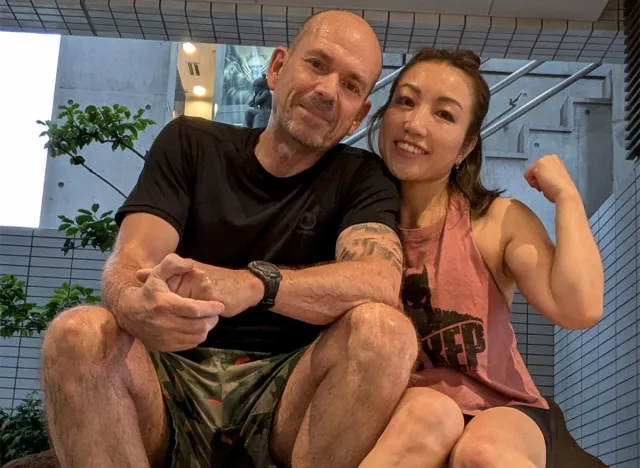
Before I dive into the list of age-defying foods, it's essential to understand why nutrition plays such a crucial role in the aging process. Our bodies are constantly exposed to free radicals and environmental stressors that can accelerate skin aging and overall cellular damage. The right anti-aging diet, rich in antioxidants and essential nutrients, can combat these effects and promote healthy aging.
By the way, I've never intentionally chosen foods that are supposedly "anti-aging." It just so happens that a diet of mostly whole foods and limiting processed foods is the secret sauce.
Before I get into the specific foods that I like to eat, let's take some time for a brief overview of some of the primary qualities of the foods in my daily diet. We'll start with antioxidants.
Antioxidants in Fight Free Radical Damage
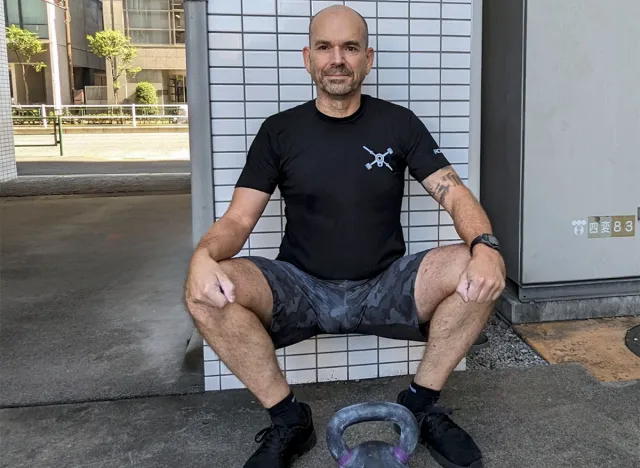
Antioxidants are our body's natural defense against free radicals – unstable molecules that can damage our cells and contribute to premature aging. By consuming antioxidant-rich foods, we can neutralize these harmful molecules and protect our skin and overall health.
How an Anti-Inflammatory Diet Contributes to Healthy Aging

Many of the foods in my diet also possess anti-inflammatory properties. Chronic inflammation is linked to various age-related diseases, including heart disease, arthritis, and certain cancers. By focusing on anti-inflammatory foods, we can support our body's natural defense mechanisms and promote healthy aging.
Now, let's dig down into the 15 anti-aging foods that have been key to my healthy diet and have helped me maintain a youthful appearance and vibrant health.
RELATED: I Hit 60 and These Daily Habits Keep Me Fit and Feeling 20 Years Younger
1. Berries: Real Ones. Nature's Anti-Aging Magic?
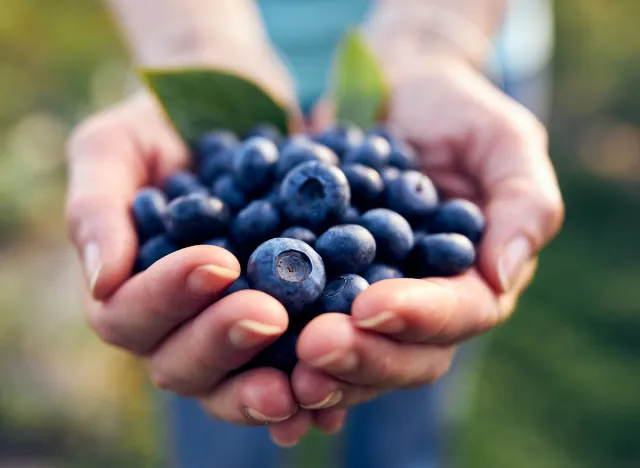
Berries are packed with antioxidants, particularly anthocyanins, which give them their vibrant colors. Regular consumption of berries can work some magic:
– Berries protect skin cells from free radical damage
– They improve cognitive function
– Berries reduce inflammation throughout the body
– Berries support overall skin health
Blueberries, in particular, are part of my daily diet. I've been nuts about blueberries, raspberries, and strawberries since I was a kid. They're all exceptionally high in antioxidants, and blueberries have been linked to improved memory and may help slow cognitive decline associated with aging.
2. Lean Animal Proteins: Building Blocks for a Youthful Body
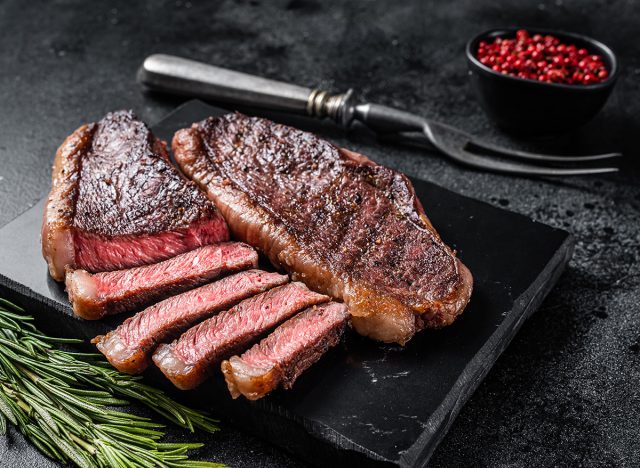
Sorry vegans. I've been there and done that. I left the dark side and came back to the world of animal protein in my twenties. Before the word "vegan" was even a fleeting wisp of an idea in someone's head, I was a Macrobiotic vegetarian. Forgive me, Father, for I have sinned.
Lean animal proteins are essential for maintaining muscle mass, supporting skin health, and promoting overall vitality as we age. Including a variety of lean protein sources in your anti-aging diet can provide numerous benefits:
- Maintain and build muscle mass, which naturally declines with age
- Support collagen production for skin elasticity
- Provide essential amino acids for overall health and repair
- Boost metabolism and promote satiety, aiding in weight management
Excellent lean protein options:
- Chicken: Rich in vitamins B3 (Niacin), B5, and B6, supporting cardiovascular health, skin health, brain function, and much more.
- Fish: High in protein and omega-3 fatty acids, which have anti-inflammatory properties
- Lean beef: Packed with iron and zinc, important for skin health and immune function
- Pork tenderloin: Rich in thiamine, supporting energy metabolism and cognitive function
- Eggs: Contain high-quality protein along with lutein and zeaxanthin, antioxidants that support eye health and may protect skin from UV damage
My experience with my nutrition clients has shown me that most people are protein-deficient, contrary to what the mainstream media tells us about the American diet. Eat more lean protein – it'll help you maintain muscle mass as you age among other myriad health benefits.
3. An Avocado a Day…
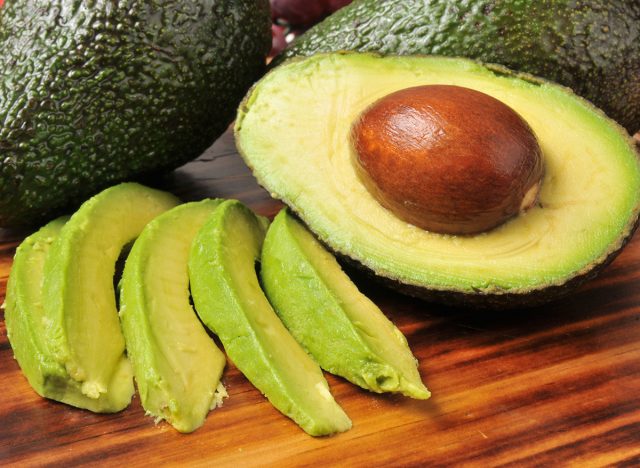
I don't think I'd ever eaten or even seen an avocado until I was in my early thirties. They just weren't common back in the '70s and '80s in Canada. Now I use avocados in a heap of different ways: in protein smoothies, in salads, and even blended into "avocado coffee." Slice them up and freeze them so they're ready for the blender.
Avocados are rich in healthy monounsaturated fats and vitamin E, both essential for maintaining healthy, youthful skin. Avocados do more than just sit there looking nice in some guacamole on a nacho:
- They hydrate the skin
- They protect against sun-induced skin aging
- They support the production of collagen and elastin
- They're full of soluble fiber, beneficial for cardiovascular health and cholesterol levels
- High in potassium
- Anti-inflammatory
Research has shown that eating avocados is associated with increased skin elasticity and reduced facial wrinkles, proof of their potential as a natural anti-aging food.
The list of benefits is huge. That's why avocados are one of my 20 essential foods.
4. Homemade Kefir Yogurt: Probiotics for Gut and Skin Health
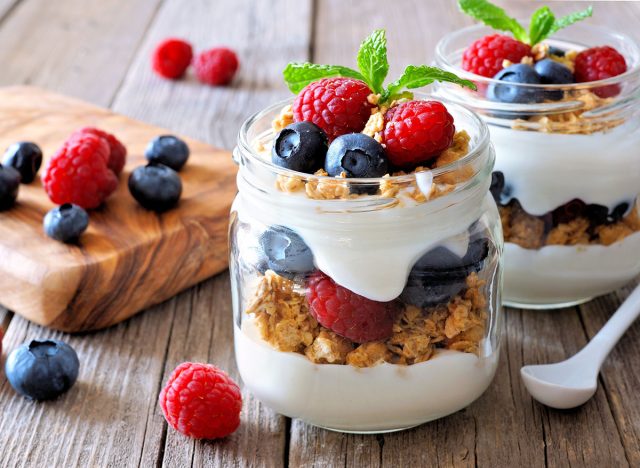
My wife and I started making our own kefir yogurt a few years ago. I'd never realized how simple it is, and the bonus is that you end up with live-culture yogurt, not the pasteurized, dead product sold in supermarkets. Making your own is cheaper and it's healthier.
We make kefir yogurt, but you can make any type at home as long as you have the right starter culture. Kefir is packed with probiotics that have several healthful properties:
- Improved gut health, directly linked to better skin health
- Immune system boosting
- Anti-inflammatory benefits
- Supports the production of collagen
There's no downside to making your own yogurt. It's quick, cheap, and easy. And yogurt is usually fine for most lactose-intolerant people.
RELATED: 15 Proven Ways to Sculpt Your Dream Body by An Expert Coach
5. Leafy Greens and Cruciferous Vegetables: Don't Leave Home Without Them
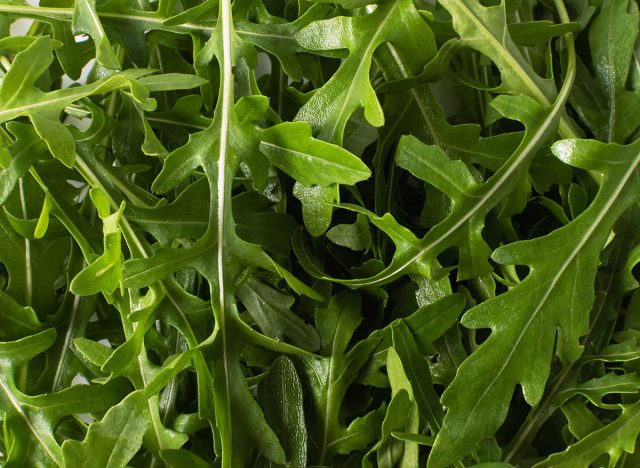
When you were a kid, you probably hated this stuff. I did too. If it was green, I thought it was inedible. "I don't eat lawn clippings, so why should I eat broccoli?"
But we're not kids anymore, right? Among the foods to keep me feeling and looking young, leafy greens like spinach, kale, and cruciferous vegetables like broccoli are at the top of my list. They're packed with nutrients that support healthy aging:
- Vitamin K for strong bones
- Folate for cell health
- Carotenoids for skin protection
- Antioxidants, protecting the body from oxidative stress and reducing inflammation
- Vitamins C and A
Eating vegetables, especially leafy greens, is crucial for combating free radical damage and supporting overall health. And most of them also contain substantial fiber for your gut health.
6. Nuts: Another source of antioxidants
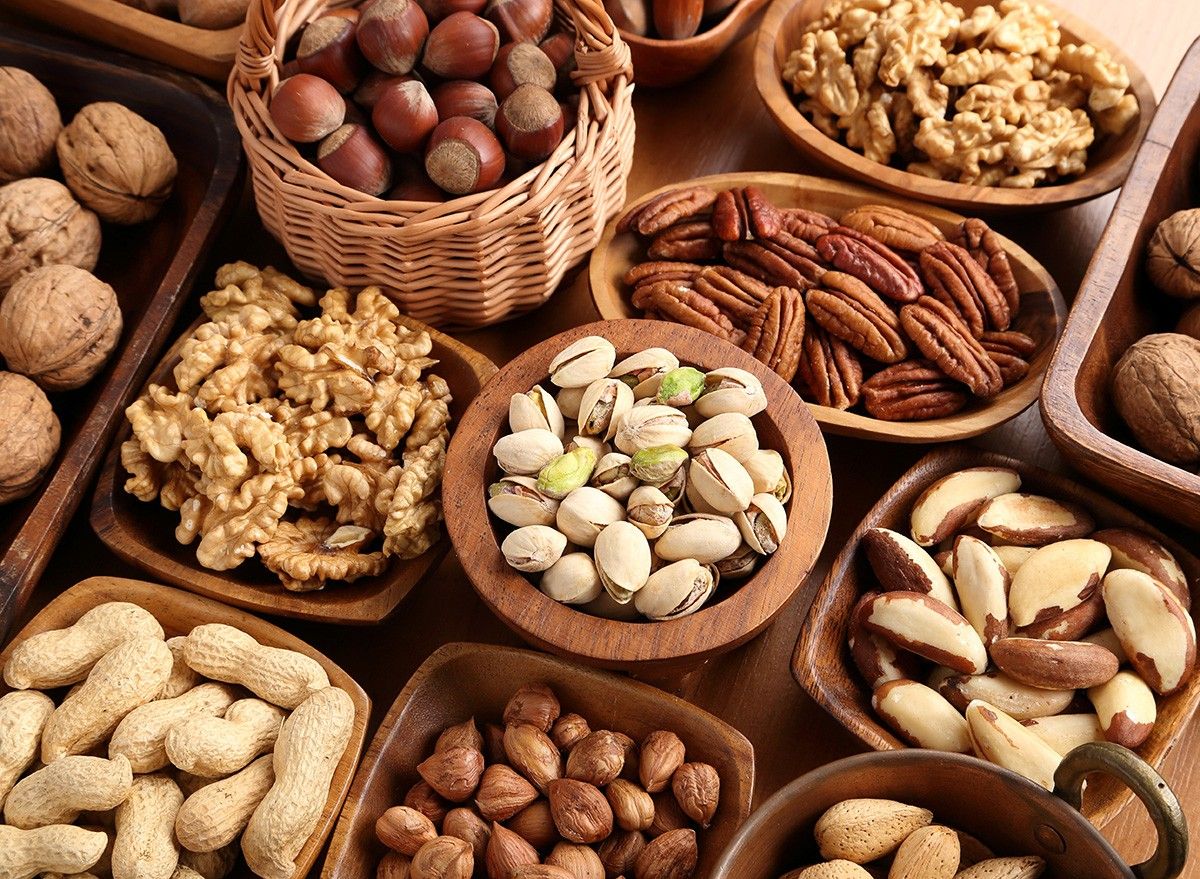
Notice a recurring theme here? Anti-oxidants. Better health, nicer skin, longer life. Anti-oxidants are key. I eat some nuts every day, without fail. I put them in my yogurt, I eat them plain. I drop a few in my coffee. Just kidding.
Nuts, particularly almonds, walnuts, and pecans, are excellent sources of several vitamins and antioxidants:
- Vitamin E for skin health
- Healthy fats for skin elasticity
- Zinc for collagen production
Nuts are also chock-full of omega-3 fatty acids. Theses have powerful anti-inflammatory properties and support cardiovascular health.
Nuts are one of the easiest foods to add to meals or bring with you anywhere. Unless you've got allergies, nuts should be part of your daily diet.
7. Sweet Potatoes. Any Variety
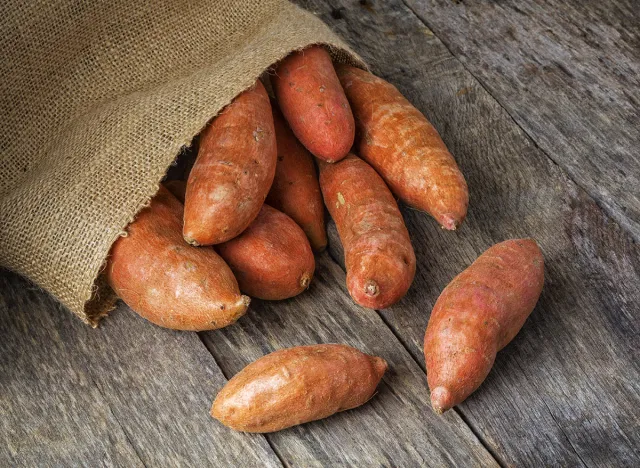
Living in Tokyo, I have access year round to roasted Japanese sweet potatoes (Satsumaimo), which are high in vitamins C and E. The orange variety common in North America is high in beta-carotene, which our bodies convert to vitamin A.
But one of the biggest benefits of sweet potatoes is that they're high in fiber, and fiber has been proven to be a huge benefit when it comes to a healthy gut and colon.
Take care of that gut health and live longer.
8. Eat Apples. Every day.
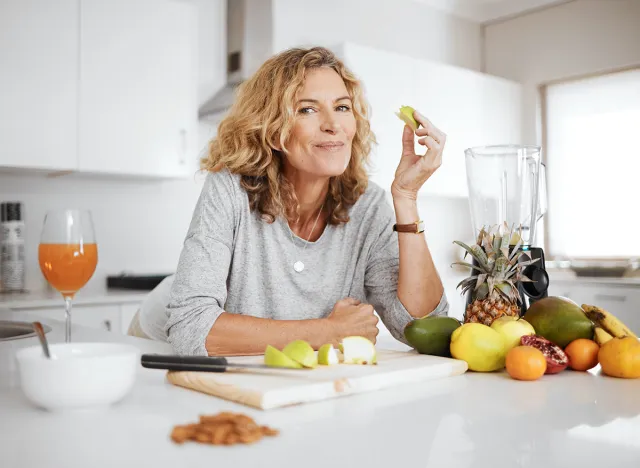
When I was a kid, we had an apple tree in our yard that produced small, slightly tart apples. I loved them then and I love them now. Kids don't need Snicker's bars. They need more apples. I eat a couple of apples daily. To me, it seems like a no-brainer. You want to feel full, eat something tasty, and not wonder if it's bad for you? Have an apple. Or three.
Apples are rich in antioxidants, particularly quercetin, which offers numerous anti-aging benefits:
- Protects against UV damage to the skin
- Supports heart health
- May help reduce the risk of certain cancers
- Promotes healthy brain function
That's not all. Apples are rich in fiber. Fermentable fiber. Fermentable fiber is a pre-biotic, helping to maintain a healthy gut microbiome. These days, supermarkets are full of all these sexy, newfangled fruits from exotic places. But give me an apple over that fancy stuff any day of the week. Apples are probably the most underrated fruit out there. Eat more apples, live a longer, healthier life. My current favorite: New Zealand Jazz.
9. Olive Oil: Liquid Gold
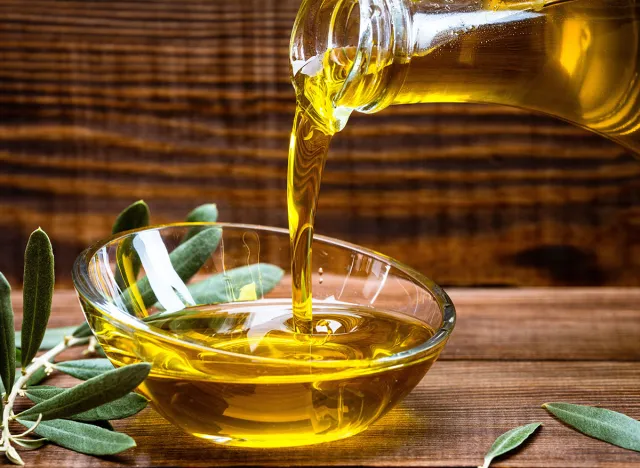
No matter what I cook each day, I'll use some olive oil. Olive oil is pretty close to a non-negotiable for any salad that sits on my table.
Extra virgin olive oil is rich in healthy monounsaturated fats and antioxidants. This is just a short-list of the benefits:
- It hydrates the skin
- It protects against free radicals
- It reduces inflammation
There's no real downside to including a moderate amount of olive oil in your daily food routine.
10. Dark Chocolate: Just Say Wow
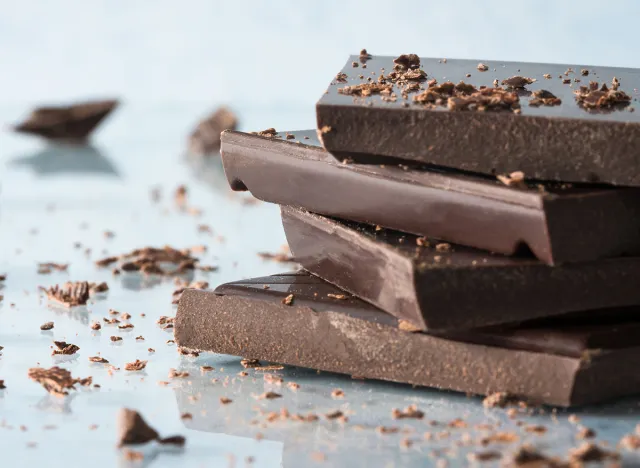
If ever there was a little something to add to your diet that is both indulgent and healthful, dark chocolate fits the bill. Now, let's not get carried away and eat a pound of this amazing stuff. But a couple squares of quality dark chocolate a few times a week has been shown to have surprising benefits, so I make this small treat part of my routine. Here's why:
Dark chocolate (70% cocoa or higher) is rich in flavanols, which are antioxidants. The benefits are huge:
- Improved cardiovascular health
- Lowered oxidative stress
- Enhanced cognitive function
- Improved metabolism
I consume it sparingly. That means I enjoy those two squares of my favorite without over-consuming and without any guilt.
RELATED: 12 Powerful Ways to Transform Your Body at Any Age
11. Curcumin: Anti-inflammatory Magic
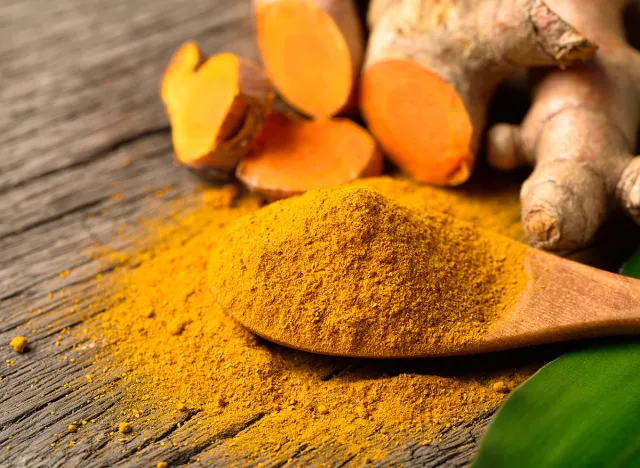
Curcumin, the active compound in turmeric, is a powerful anti-inflammatory agent with huge benefits, including managing oxidative and inflammatory conditions, metabolic syndrome, arthritis, anxiety, hyperlipidemia, and enhancing recovery and performance after exercise.
I began taking it in capsule form when I started to get arthritis pain. I haven't stopped. Of course, you can put whole turmeric in your smoothies, but I find the concentrated version easier to integrate into my daily routine.
12. Coffee: The Antioxidant-Rich Elixir of the Gods

Coffee. If I were to write a sonnet, it'd be about coffee. But since I live in Tokyo, I'll give you a Haiku:
Morning fog persists,
Until that first sip kicks in,
Sanity restored.
Coffee is packed with antioxidants that offer numerous anti-aging benefits:
- Coffee protects against cellular damage from free radicals
- Coffee may lower the risk of type 2 diabetes and certain cancers
- Coffee supports cognitive function and brain health
The idea that coffee is unhealthy is a myth that started back in the 17th century. If you're sensitive to caffeine, try decaf. Consumed in moderation, the health benefits of coffee are huge.
13. Powdered Collagen (Types I, II, and III): Skin Health, Gut Health, Joint Health
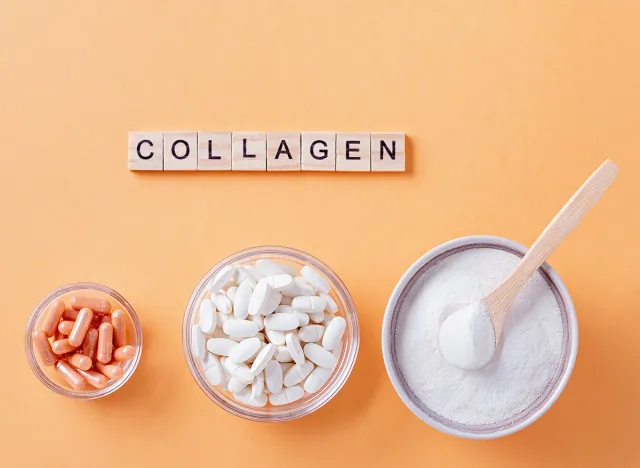
Collagen has been part of my daily routine ever since I was diagnosed with advanced arthritis in my right hip back in 2016. I mix it in smoothies and coffee. I also take a Type II undenatured collagen supplement since research has shown that it reduces pain in arthritic knees. And guess what? Since I started taking it a year ago, my arthritic right knee stopped hurting. Completely.
Making collagen a part of my daily routine, for me, has been nothing but upside. Supplementing with powdered collagen can have a number of benefits:
- Collagen improves skin elasticity and hydration
- Collagen supports joint health and mobility
- Collagen can improve symptoms of osteoarthritis
- Collagen strengthens hair and nails
- Collagen promotes gut health
I never go a day without supplementing with collagen.
14. Garlic: The Wonder-Food
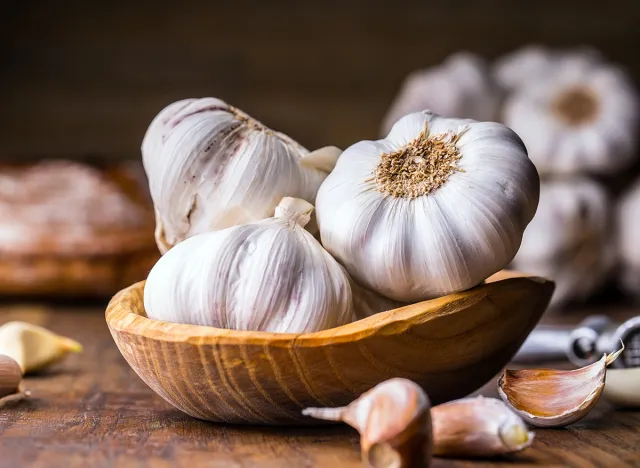
Just about every dish we cook in my home contains garlic. Every sautee, every beef dish, roast chicken, and sauce has some garlic in it.
Garlic is packed with health benefits:
- It contains allicin, a compound with powerful antioxidant properties
- It may help lower blood pressure and cholesterol levels
- It supports immune function
- It has anti-inflammatory effects
- And it makes almost anything taste great.
I grew up in a garlic-free household. That was then, this is now. I can't imagine cooking without garlic.
15. Fatty Fish: Omega-3 Powerhouse
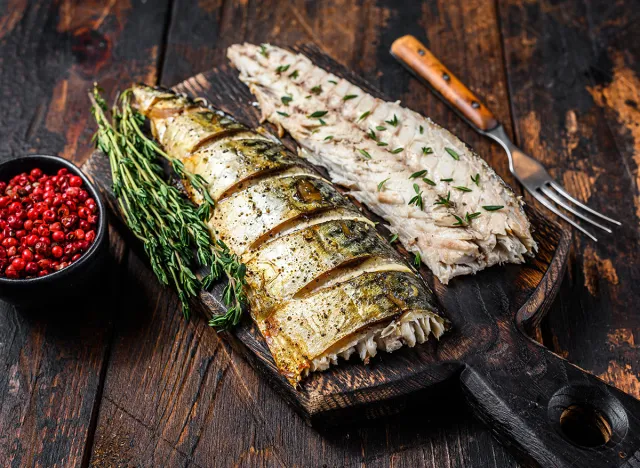
While we've discussed lean proteins, fatty fish deserves a mention for its high content of omega-3 fatty acids.
Nobody gets enough fish. That goes for me too. So I eat fish when possible, but since it's tough to incorporate into my diet as much as I'd like, I also take a very high quality Omega-3 fish oil supplement.
Fish like salmon, mackerel, and sardines offer a lot of upside:
- Powerful anti-inflammatory properties
- Support for cardiovascular health
- Nutrients that promote skin elasticity and hydration
- Protein
Eat more fish, but if you find that it tough to get enough, a high-quality Omega-3 supplement will do the trick.
RELATED: 3 Easy Steps That Will Help Anyone Lose Weight and Look Great
The Power of a Holistic Approach to Healthy Aging

While these 15 fundamental, anti-aging foods have been instrumental in my journey maintaining youthful vigor, it's important to remember that true health, youthfulness, and longevity come from a holistic approach. Here are some additional tips to complement your anti-aging diet:
Stay Hydrated
Proper hydration is crucial for maintaining healthy, youthful-looking skin. Aim to drink at least 8 glasses of water a day, or half your bodyweight in ounces (eg a 150 lb person can start at 75 ounces per day).
Get Enough Sleep
Quality sleep is essential for cell repair and regeneration. Aim for 7-9 hours of sleep each night. Sleep is the forgotten element of healthy aging and long life.
Exercise Regularly
Physical activity boosts circulation, supports muscle mass, and promotes overall health. Find activities you enjoy and make them a regular part of your routine. Lack of exercise is one of the biggest factors contributing to poor health in America.
Manage Stress
Chronic stress can accelerate the aging process. Practice stress-reduction techniques like meditation, yoga, or deep breathing exercises.
Reduce Alcohol Consumption
One of the most significant changes I've made in my journey to better health and a more youthful feel is drastically reducing my alcohol intake. This decision was based on the latest research, which shows that the drawbacks of alcohol consumption far outweigh any potential benefits.
Recent studies suggest there is no safe level of alcohol consumption when it comes to overall health. Regular alcohol consumption is linked to accelerated skin aging, increased health risks, including various cancers and liver disease, and disrupted sleep patterns crucial for cellular repair and overall health.
Cut your drinking in half, and gradually reduce it to one or two drinks a month, or better yet, one. One of my favorite sayings that holds true: "Drinking is stealing happiness from tomorrow."
Avoid Processed and High Sugar Foods
A key aspect of an anti-aging diet is minimizing processed and high sugar foods. These foods are so ubiquitous in our culture that we don't even notice them anymore, but the fact is, nobody needs a box of sugary cereal or a jumbo bag of nachos.
These foods can contribute to inflammation, accelerate skin aging, and increase the risk of chronic diseases like cardiovascular disease and type 2 diabetes.
RELATED: I've Tried Nearly Every Diet and This is the #1 Best for Weight Loss For Me
Conclusion: Embracing a Youthful Life Through Nutrition and Lifestyle
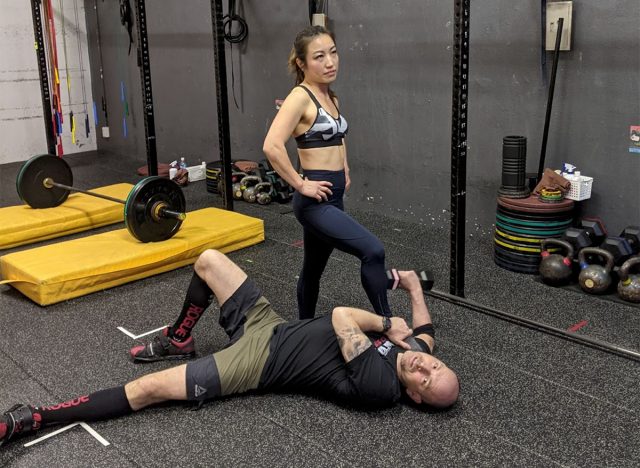
By incorporating these 15 anti-aging foods into my diet, along with a holistic approach to health that includes reducing alcohol consumption and avoiding processed foods, I've discovered a way to put the brakes on aging (to some extent). The solution exists within our own kitchens and daily choices, not with expensive subscriptions to dubious online remedies, cleanses, retreats, or unproven technological devices. It's never too late to change your habits, one day at a time, and slow down or even halt the slide into decrepitude.
We're all eventually going to get old. The trick is to learn how to feel and look great while you're doing it! And if you enjoyed this article, take advantage of these 15 Quick Ways to Lose Body Fat Percentage in a Week.




